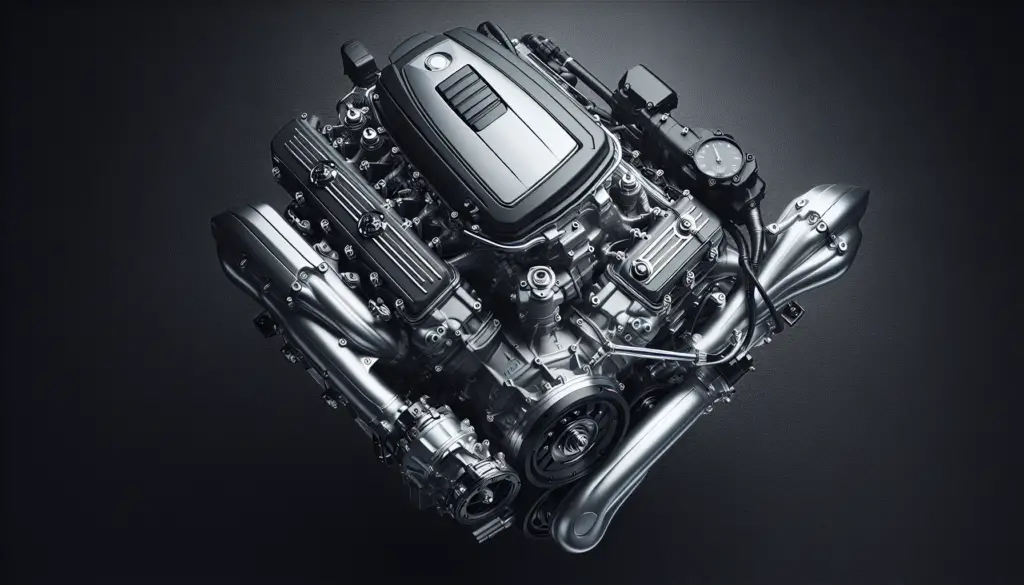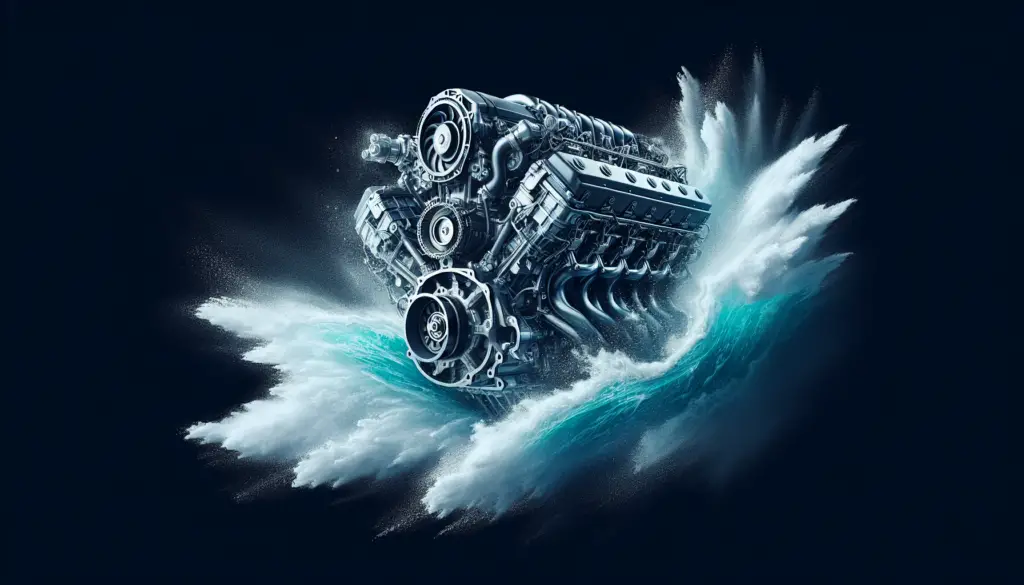Imagine this: you’re out on the water, the wind in your hair, the sun on your skin, your heart pounding in your chest from the thrill of slicing through the waves at high speeds. Behind it all is the roar and vibration of a powerful boat engine that you can rely on. In the following article, you will find a detailed overview of some of the best boat engines out there for speed and performance. By the end, you’ll be well-equipped to pick out an engine that best meets your speed and performance needs, giving you unforgettable moments on the water.

Understanding Boat Engine Power
The power of your boat’s engine greatly affects how your vessel performs on the water. Understanding how this power works can help you make the most of your boating experience. Whether you’re looking to speed across the waves or enjoy leisurely river cruises, the engine’s power influences your boat’s acceleration, speed, and overall performance.
Basics of Boat Engine Power
At its core, a boat’s engine power refers to the amount of force the engine can exert. Typically, this force is measured in horsepower (HP), a unit of measurement created by engineer James Watt. When talking about boat engines, the power output refers to how much HP the engine is capable of generating. This output is influenced by a variety of factors including the engine’s size, fuel type, and technology used to create energy.
Horsepower and Its Importance
Horsepower (HP) is arguably the most crucial factor when discussing boat engine power. Higher horsepower means your boat engine can work harder and faster. This generally equates to higher speeds and better acceleration. Besides speed and acceleration, HP also impacts your boat’s ability to carry load and perform in tough water conditions. However, remember that while high HP is beneficial, it should always be in line with the boat size and purpose.
Evaluating Boat Speed And Performance
Performance and speed are the two critical factors most boat owners consider. However, understanding what influences these elements is equally important.
Factors Affecting Speed
Numerous elements impact your boat’s speed. This includes not only the engine’s horsepower but also hull design, boat weight, and even the condition of the water on a particular day. The type of boat also plays a key role, with some designs naturally being faster than others.
Why Performance Matters
Performance is more than just speed. It includes things like how smoothly your boat handles, how quickly it can get up to its top speed (known as “planing”), and how well it performs under different loads and in various water conditions. Good performance means greater efficiency, better fuel economy, and an overall more enjoyable boating experience.
Balancing Speed and Performance
While we all love the thrill of speed, it’s important not to neglect the overall performance. Having the ability to achieve high speeds won’t mean much if your boat can’t handle well or consumes excess fuel. Therefore, balance between speed and performance is vital. Depending on your boating needs, you may need to prioritize one over the other.
Two-Stroke vs Four-Stroke Engines
The distinction between two-stroke and four-stroke engines can be a little tricky to understand for non-mechanics, but it significantly impacts the speed and performance of your boat.
Understanding the Difference
The essential difference between two-stroke and four-stroke engines lies in how they process fuel. Two-stroke engines complete a power cycle in just two strokes of the piston, meaning they’re generally more powerful for their size than four-stroke engines. However, four-stroke engines complete the power cycle in four strokes, which makes them run smoother and quieter.
Which is Faster?
While two-stroke engines are typically more powerful and faster due to their higher power-to-weight ratio, they aren’t as efficient as four-stroke engines. If speed is your primary concern, a two-stroke engine might be right for you. However, be prepared to sacrifice fuel efficiency and quiet operation.
Which has Better Performance?
Four-stroke engines often excel when it comes to overall performance as they’re more fuel-efficient, quieter, and tend to have longer lifespans compared to two-stroke engines. However, they’re typically heavier and require more maintenance.
Inboard Engines
Now that you’re familiar with different engine types let’s look at specific engine categories, starting with inboard engines.
What are Inboard Engines?
Inboard engines are mounted inside the boat’s hull in the center of the boat. Their position provides excellent balance and weight distribution, contributing to better overall stability.
Pros and Cons
Inboard engines are known for their impressive power and quiet operation. They also allow for a more spacious cockpit area. However, these engines can be more costly, require professional help for maintenance, and do not perform very well at low speeds or in shallow water.
Best Inboard Engines for Speed and Performance
The best inboard engines for speed and performance tend to be large and rank high in horsepower. Popular options include the Volvo Penta series and the Yanmar series, both renowned for delivering excellent speed and power.

Outboard Engines
Next up, we have outboard engines, which are likely what comes to your mind when you first think of boat engines.
What are Outboard Engines?
Outboard engines are located on the outside of the boat at the stern. They’re typically smaller and lighter than inboard engines and are used on a wide variety of vessels.
Pros and Cons
Outboard engines are easy to maintain, cost-effective, and perform exceptionally well at high speeds. They also have a better shallow water capability than inboard engines. However, they aren’t as powerful or as quiet as their inboard counterparts.
Best Outboard Engines for Speed and Performance
If you’re after speed and performance, consider engines like the Mercury Verado series or Yamaha’s V MAX SHO series. These outboards offer excellent horsepower, accelerated speed, and impressive overall performance.
Sterndrive Engines
Sterndrive engines are often considered a combination of inboard and outboard engines.
What are Sterndrive Engines?
Sterndrive engines, also known as inboard-outboards (I/O), feature an inboard engine connected to a drive unit on the outside of the boat.
Pros and Cons
Sterndrive engines offer the power of inboards while providing the agility of outboards. They also allow for a more spacious cockpit. However, they can be costly, and their maintenance can be labour-intensive.
Best Sterndrive Engines for Speed and Performance
For speed and performance, the Mercruiser sterndrive engines are a reliable option. They offer excellent power with impressive fuel efficiency.

Engine Brands And Their Performance Ratings
Different brands offer a variety of boat engines, here’s a rundown of some of the most popular manufacturers.
Mercury Marine
Mercury Marine is a well-known boat engine brand with a reputation for producing high-performance engines. Its outboard engines, in particular, stand out for their speed, power, and reliability.
Yamaha Outboards
Yamaha is another respected name in the boating industry. Known for their reliability, smooth operation, and long lifespan, Yamaha outboards consistently rank high in performance ratings.
Honda Marine
Honda Marine is renowned for its four-stroke outboard engines. These engines stand out for their fuel-efficiency, durability, and innovative technology, making them a reliable choice for many boaters.
How To Maximize Engine Speed And Performance
With a better understanding of boat engines, you can maximize their performance with proper maintenance, regular checks, and even some upgrading.
Proper Maintenance
Regular maintenance is key to keep your engine in top shape. This includes tasks like changing the oil, checking and replacing the spark plugs, and maintaining the cooling system.
Regular Engine Checks
Regular engine checks can help detect potential issues before they become serious problems. Make sure to monitor your engine’s temperature, oil pressure, and RPM regularly.
Upgrading and Tweaking your Engine
Upgrades like high-performance propellers can significantly affect your boat’s speed and performance. Remember, it’s important to choose upgrades suitable for your specific boat and engine.

Environmental Impact And Fuel Efficiency
It’s critical for boaters to understand the environmental impact their engine can have and aim for fuel-efficient operations.
Understanding the Environmental Impact of Boat Engines
Boat engines, particularly older or poorly maintained ones can have a substantial environmental impact, mostly through the emission of harmful pollutants. This harm is not only to the air but also to the water bodies they are operated in.
Importance of Fuel Efficiency
Fuel efficiency contributes not only to your boat’s performance and operation cost but also to its environmental footprint. More fuel-efficient engines emit fewer greenhouse gases, which can help reduce the environment’s harm.
Sustainable Practices For Boating
Adopting sustainable practices like using fuel-efficient engines, regular maintenance to reduce emissions, and responsible waste disposal can make a big difference in reducing your boating’s environmental impact.
Future of Boat Engines
The marine industry is continually innovating, and the future of boat engines looks incredibly promising.
Electric Boat Engines
Electric boat engines are a viable option for a more sustainable future. They offer quiet operation and zero emissions while also requiring less maintenance than their fuel-powered counterparts.
Solar Powered Boat Engines
solar-powered boat engines are another eco-friendly alternative. While still in early stages, these engines promise unlimited, free energy source and minimal environmental impact.
Emission Free Boating
As new technologies continue to evolve, the future of emission-free boating is on the horizon. This is a significant step forward in making boating a truly green recreational activity.
Understanding your boat’s engine power coupled with good maintenance practices and a green mindset can significantly enhance your boating experience. Whether you’re a speed enthusiast or a leisurely cruiser, the key to an enjoyable boating experience lies in balancing speed, performance, and sustainability.

